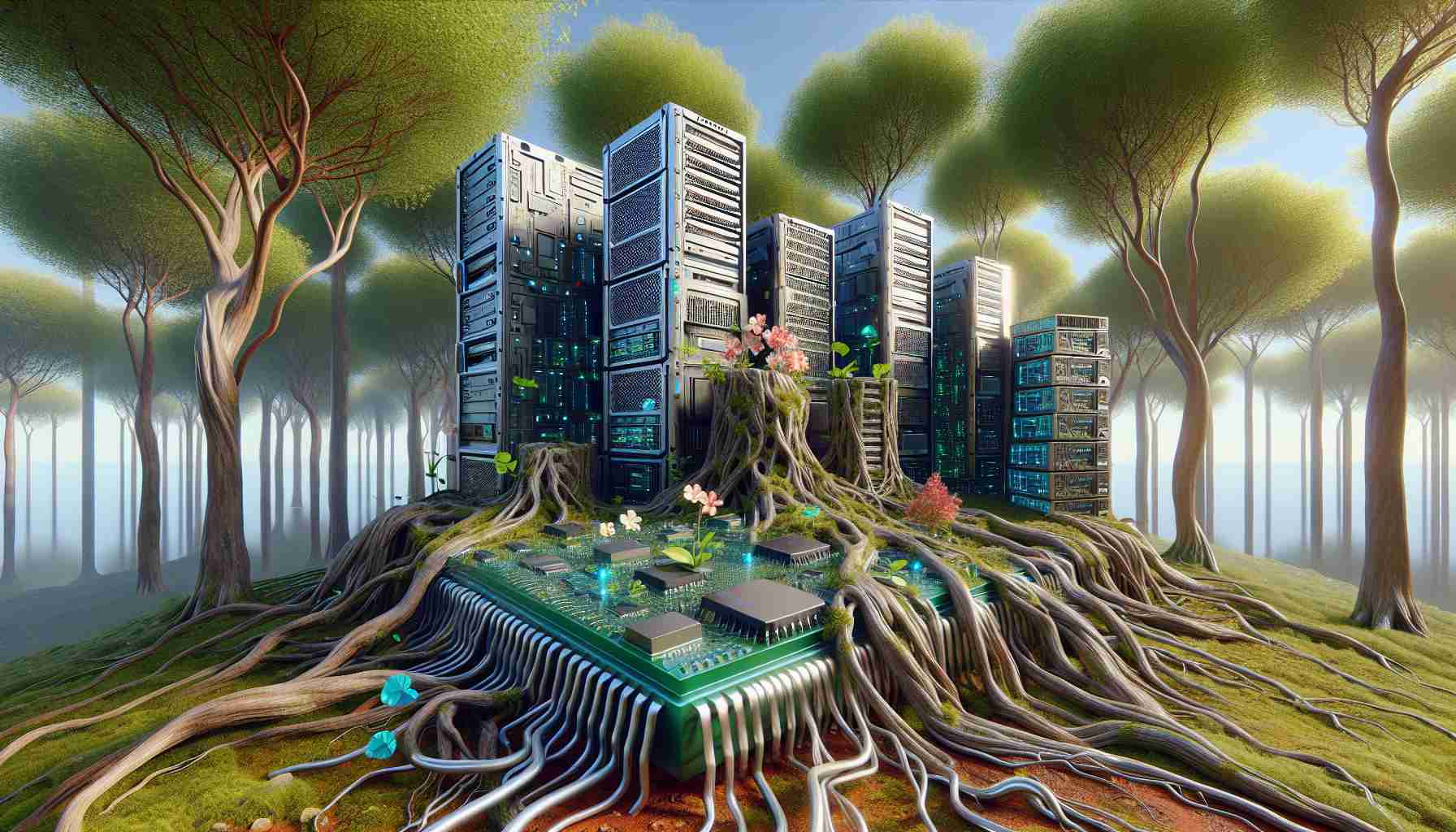Artificial intelligence (AI) has become a hot topic at the World Economic Forum, an annual gathering of global elites. In the midst of discussions on AI’s capabilities and potential, a thought-provoking art installation titled “Living Archive: Nature” brings a fresh perspective to the table.
Created by Refik Anadol, a media artist based in Los Angeles, this installation aims to connect AI with nature and emphasize the need to preserve our natural world. By incorporating visual, sound, and scent elements of different ecosystems, the installation offers a multisensory experience. It uses generative AI, a program that generates content based on data from the natural world, to immerse participants in the beauty and intelligence of nature.
Anadol believes that we have become detached from nature, and through the power of AI, he hopes to foster love and respect for the environment. His installation serves as a call to action, urging people to protect and preserve nature before it’s too late.
The integration of generative AI, which can produce various forms of media, has sparked both optimism and fear about the capabilities of advanced computer systems. In discussions at the World Economic Forum, AI has been a dominant topic, with approximately 30 sessions addressing its impact.
Alongside AI, climate change has also been a major focus. Anadol’s installation serves as a bridge between these two pressing issues, showcasing the intelligence of nature to train the AI model. This departure from relying solely on human intelligence opens up exciting possibilities for understanding the world in new ways.
Participants in the installation are surrounded by immersive elements, including a collar that enhances the experience. They witness vibrant “generative nature simulations” of rainforests, complete with waterfalls, birds, and flowers. Special sensors installed in different rainforests project images to the AI installation, creating a connection between the physical realm and the generative AI model.
The underlying AI model is being developed for the forthcoming Dataland museum in Los Angeles, scheduled to open next year. Drawing on open access information from reputable institutions like the Smithsonian and London’s Natural History Museum, the model facilitates interdisciplinary research and provides a unique understanding of nature.
Anadol and his team view their presence at the World Economic Forum as an opportunity to gather more data from global institutions and archives, expanding the model’s knowledge base.
AI, when trained on ethically sourced data, has the potential to enhance human understanding of the world. Anadol believes that while machines have capabilities beyond human reach, humans possess unique abilities that machines cannot replicate. With AI as a collaborator, art, perspectives, and possibilities can be elevated to new heights.
“Living Archive: Nature” challenges us to rethink our relationship with AI and nature. It invites us to embrace AI as a tool that can deepen our connection to the natural world. With the urgent need to address environmental issues, Anadol’s installation reminds us that the time for action is now, and AI can be a part of the solution.
Artificial intelligence (AI) – refers to the development of computer systems that can perform tasks that would typically require human intelligence.
Generative AI – a program that generates content based on data from the natural world, used in the installation to create immersive experiences.
World Economic Forum – an annual gathering of global elites where discussions and debates on various topics, including AI and climate change, take place.
“Living Archive: Nature” – an art installation created by Refik Anadol, aimed at connecting AI with nature and raising awareness about the importance of preserving the natural world.
Immersion – a state of being deeply engaged or absorbed in a particular experience, in this case, the participants are surrounded by visual, sound, and scent elements to create an immersive experience.
Climate change – refers to the long-term shift in global or regional weather patterns, primarily caused by human activities, resulting in significant changes in temperature and weather conditions.
Dataland museum – an upcoming museum in Los Angeles, where the underlying AI model from the installation will be developed further.
Interdisciplinary research – research that integrates knowledge and techniques from multiple fields or disciplines to gain a comprehensive understanding of a particular topic.
For further information on AI and its applications, you can visit the World Economic Forum website.
To explore more about the intersection of AI and nature, you may find interesting resources at the Smithsonian and London’s Natural History Museum websites.
The source of the article is from the blog hashtagsroom.com

